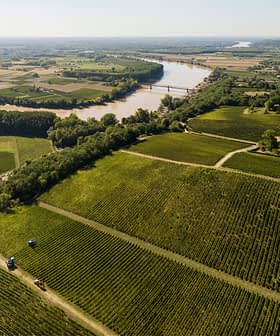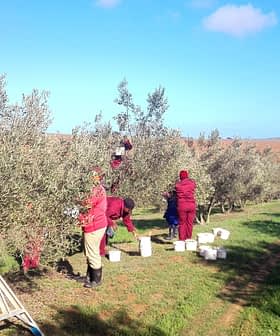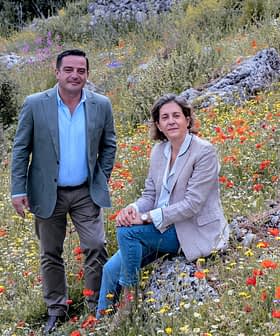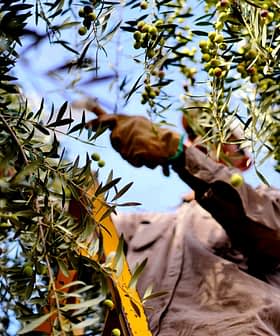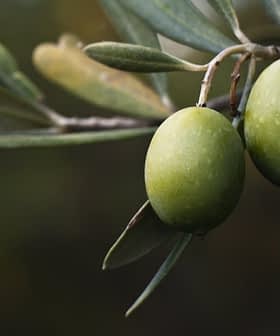South African Olive Farm Prepares for Challenging Harvest Season
Learn about the challenges and sustainable olive oil production at Tokara Olives, a top producer in South Africa's Western Cape.
Gert van Dyk of Tokara Olives anticipates the upcoming harvest season in South Africa’s Western Cape region, despite facing challenges due to heavy rains. Tokara’s commitment to producing high-quality extra virgin olive oil through sustainable farming practices has earned them recognition as one of the country’s top producers and a Gold Award at the 2024 NYIOOC World Olive Oil Competition.
“It will all start very soon,” Gert van Dyk, operations manager at Tokara Olives, told Olive Oil Times.
The harvest season is fast approaching in the foothills of the Simonsberg mountain range near Stellenbosch, in the heart of a vast nature conservancy in South Africa’s Western Cape region.
When the trees have to wake up in August, they cannot because it’s too cold and too wet.
“While some farms in our region will enjoy a highly productive harvest, we face greater challenges due to the heavy rains between last October and November,” van Dyk said.
“Groves in lower areas, where the roots awakened earlier, experienced earlier flowering,” he added. “Our farm, situated on a mountain slope with cooler temperatures and heavier soil, was hit by rainfall right in the middle of flowering.”
See Also:Producer ProfilesDespite these challenges, Tokara remains committed to producing high-quality extra virgin olive oil. The company’s dedication has earned it recognition as one of the country’s top producers and a Gold Award at the 2024 NYIOOC World Olive Oil Competition.
Tokara’s journey with olive oil began at the dawn of the 21st century. “In 2001, Mr. and Mrs. Ferreira, the founding owners of Tokara, had the vision of creating world-class extra virgin olive oil alongside our renowned wines,” van Dyk said.
Van Dyk attributes much of Tokara’s success to its commitment to sustainable farming practices.
“As a farmer, I want to work as naturally as possible,” he explained. “I would like to be biodynamic or organic or in some way try to be the closest to it that I can be.”
A cornerstone of Tokara’s olive cultivation is its commitment to Integrated Pest Management (IPM).
Traditional farming relies on predefined chemical intervention protocols for grove management.
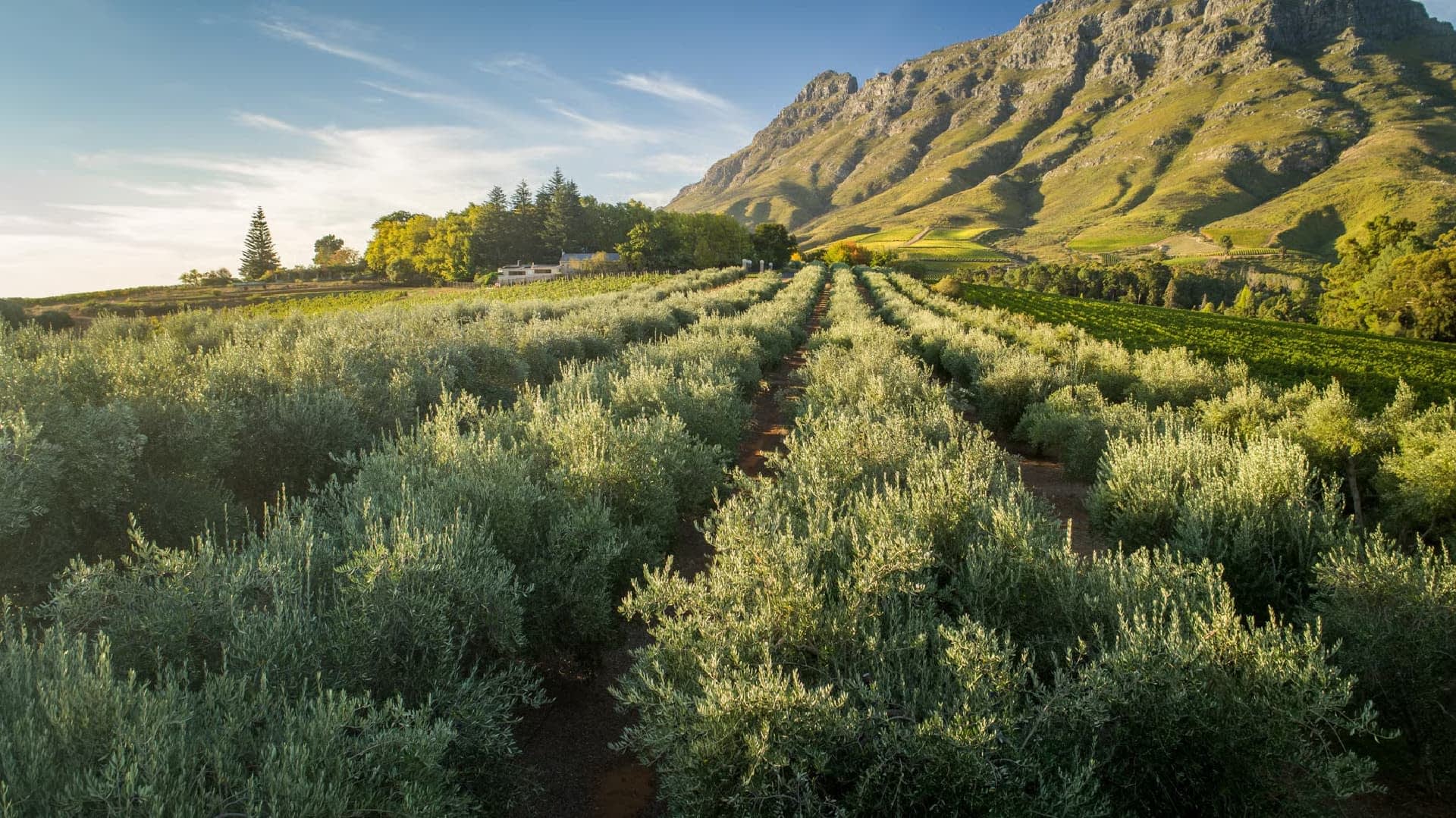
Tokara Olives’ groves sit at the foot of the picturesque Simonsberg mountain range. (Photo: Tokara Olives)
“In other words, the conventional way is that prevention is better than cure,” van Dyk said. “Obviously, it is a very expensive system too.”
“To develop our IPM, we monitored the large areas weekly. The managers would go through those areas and file specific reports,” he added. “This allowed us to implement targeted treatments, addressing pests only in affected areas rather than across the entire farm.”
This approach enabled the farm to identify the yellow and black striped olive beetle populations, South Africa’s primary olive pest. The larvae feed on leaves and burrow into them, harming new growth.
“Detecting the beetle in its larval stage allows us to control it before it matures, preventing future population surges,” van Dyk said.
This led to precise spraying operations that targeted pests while preserving their natural predators.
“Pesticides should be pest-specific,” van Dyk said. “Instead of using broad-spectrum pyrethroids that kill everything, we apply targeted treatments that eliminate only the intended insect.”
In addition to pest control, the farm prioritizes soil health through environmentally sustainable practices.
“I call them biopods,” van Dyk said. “When we prune, we process the pruning through the chipper. It makes a big heap of mulch in between the trees.”
“Rather than evenly spreading the mulch, we leave the heaps intact, only removing the top layer,” he added.
These heaps create a long-term habitat for microorganisms, enhancing soil fertility.
“If the mulch is spread out, sunlight burns off carbon, reducing its benefits,” he explained. “With biopods, the organisms live there for about two to three years.”
Van Dyk noted that biopods transform the farm’s compacted soil into a richer, more fertile environment.
“They condition the soil to such a point that you can dig there by 30 centimeters and the soil will be soft,” he said. “There will be earthworms and white fungus, the roots will come into that area. It creates soil conditioning.”
“This creates a sustainable cycle. Improved soil leads to stronger root systems and healthier, more balanced trees,” van Dyk added.
Tokara’s groves are situated at a high altitude near the sea and are impacted by a cool climate and refreshing sea breezes. “These natural conditions create an ideal environment for olive growing,” van Dyk said.
The farm grows several renowned Italian olive cultivars, including Frantoio, Coratina, Leccino and Favolosa, as well as the American variety Mission.
“The blend obtained from these cultivars brought forth the desired aromas and taste preferred by the owners,” van Dyk said.“Of course, a crucial aspect is the olive milling process.”
“We count on a boutique-style olive oil mill with a state-of-the-art Pieralisi continuous-cycle extraction plant,” he added. “That enables the miller to work with smaller batches of the highest quality handpicked oil olives.”
Van Dyk emphasized that olive producers in the region must account for the trees’ alternate bearing cycle when establishing a farm.
On and off years
Olive trees have a natural cycle of alternating high and low production years, known as “on-years” and “off-years,” respectively. During an on-year, the olive trees bear a greater quantity of fruit, resulting in increased olive oil production. Conversely, an “off-year” is characterized by a reduced yield of olives due to the stress from the previous “on year.” Olive oil producers often monitor these cycles to anticipate and plan for variations in production.
“That is the biggest challenge in the industry. When you buy your trees, you should buy trees that are genetically less prone to alternate bearing,” he explained.
“When starting, check the nursery’s mother blocks to ensure they have a strong production history,” van Dyk added. “If you plant the clone of something that is not here or there in terms of production, then you’re going to fight your whole life to have good crops.”
Weather patterns have also changed over the years, posing new challenges for local farmers.
“When I entered the industry 27 years ago, the Southeaster wind reliably began blowing on October 1st,” van Dyk said. “This dry wind played a crucial role in pollination.”
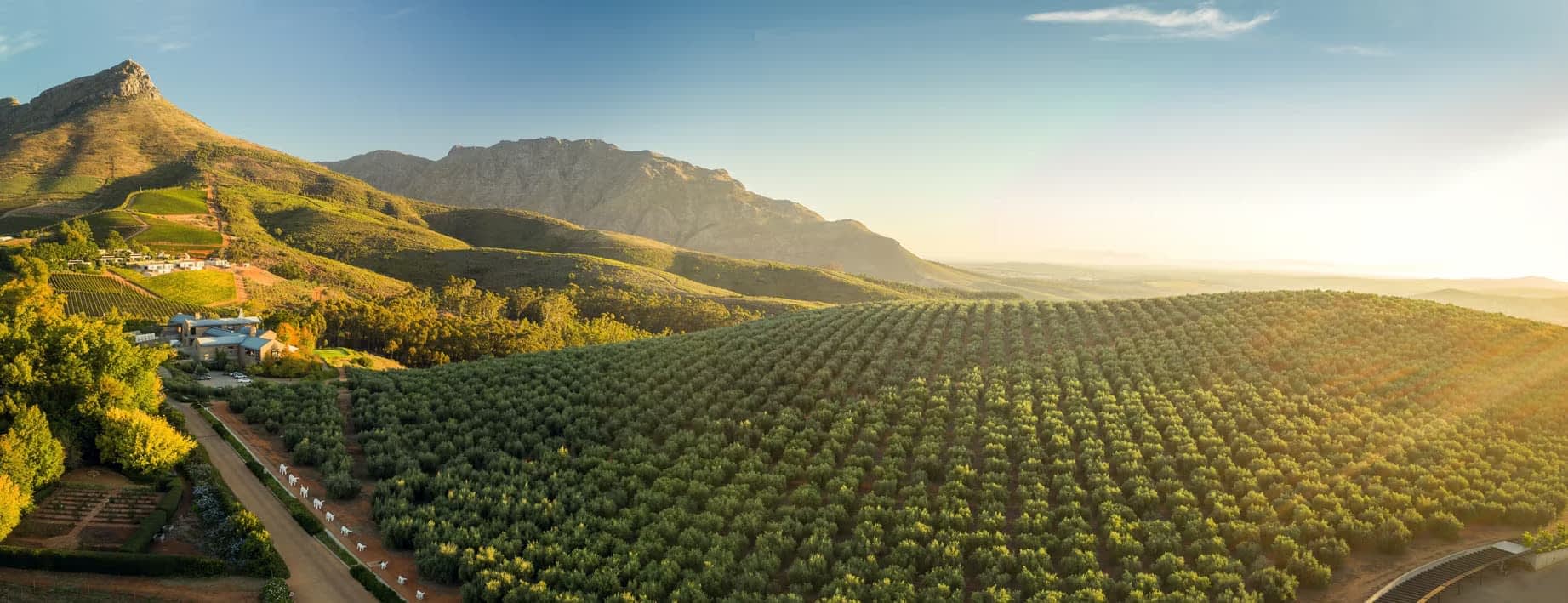
Van Dyk has noticed how the climate has changed overtime, occassionally disrupting pollination and fruit setting. (Photo: Tokara Olives)
“Now, the wind arrives in November or December, creating a more humid microclimate among the trees,” he added.
Tokara’s operations manager also observed shifts in rainfall patterns, with rains that previously arrived in March and April now falling in June or July.
“When the trees have to wake up in August, they cannot because it’s too cold and too wet. The soil is too cold. The roots go into a semi-hibernation when the soil temperature is under 12 ºC,” van Dyk noted.
Coping with those challenges and aiming at quality, Van Dyk believes there is a bright future for olive oil in the country, as consumer awareness about extra virgin olive oil’s health benefits increases.
“Continuous education through extra virgin olive oil tastings and presentations, highlighting health benefits and food pairing options, remain the core focus for the miller at Tokara,” he concluded.
Share this article


